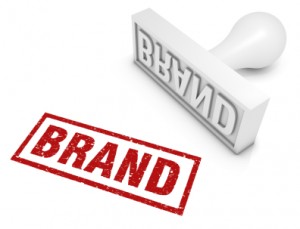 Our world is composed in part by different dimensions. Practically speaking, every tangible object has 3 things in common – the dimensions of length, width, and height. But what holds them all together is the 4th dimension: time.
Our world is composed in part by different dimensions. Practically speaking, every tangible object has 3 things in common – the dimensions of length, width, and height. But what holds them all together is the 4th dimension: time.
In business, Brand is the 4th dimension. The first three are price, quality, and service. These are what your grandpa and his grandpa yapped about on front porches during heated discussions about Sears, Roebuck & Co. They are easily measured, much like length and width. Visit any retail website and you can compare every line item from features, pricing, and quality reviews with just the click of a mouse. But it just isn’t enough anymore.
So what exactly is a brand? It’s the personification of a company. If a company were a person, it’s the personality and habits of that person. Neutron LLC defines a brand in their presentation The Brand Gap as “the gut feeling a person gets about a product, service or organization.” When I worked for Red Bull, our brand was defined by [human] character traits, such as “loves life,” “anti-authoritarian,” and “self-mocking.” As is such, all Red Bull events and athletes are living, breathing representations of the brand they personify. And you know what isn’t a brand? A logo. I once read “a logo isn’t a brand unless it’s stamped on a cow.” It’s true.
There are a number of reasons that the steadfast 3 dimensions of business aren’t viable options anymore for differentiation. One being that in the 21st there are fewer barriers to entry. More people can launch products and services (and with less capital) than ever before. Critics made similar claims about the artists in music industry after the rise of resources like Myspace, Purevolume, and most recently ReverbNation and Bandcamp. Everybody is a publisher. Everybody is a director. Anybody will sell you a car. Anyone can sub-contract a professional job with a free account on Freelancer.com. And the only way for a business to find salvation is, as always, differentiation. But it’s not about pricing anymore. It’s also not about outspending your competition. Have you heard of viral marketing? It’s about branding.
It’s been said that 2/3 of Apple’s $500 billion net worth derives solely from brand equity. This means buildings, assets, patents, proprietary technology, sales, credit lines, human capital, cash, and projections combined are valued at half of the intangible – the brand. Let’s take a moment to consider this so-called brand that will soon make Apple the most valuable company of all time.
We begin by examining the outlets most popularized by Corporate America into building brands and retaining companies. They are social media, blogs, sponsorships, marketing events, and advertising.
How Apple measures up:
Social media – Not on Twitter, very little Facebook activity
Blogs –Apple blogs are run by 3rd party fanboys and pseudo news reporter wannabees
Sponsorships – Rare and almost always under wraps. I worked for a company sponsored by Apple and benefits were never publicized.
Special events – Unless you consider the Apple store an event… Usually only 1-2 official symposiums per year.
Advertising – Relatively minimal budget, simplistic premise, with focus on product benefits (not features).
So then how does Apple esteem as such a valuable brand? I think part of their brand is in not having a [by-the-book] brand. When I think of Apple and seek analogous examples in history, I’m reminded of the fictional Willy Wonka and his chocolate factory. Nothing goes in, nothing comes out. All information is need-to-know basis only. The effect is a quite literal microcosm of fiction– consumers recognize the logo, own the products, and yet know nothing about their production or procurement…
Ryan Kulp is a twentysomething entrepreneur living in NYC who does marketing for ShuttleCloud, a TechStars startup. Ryan recently published his first book, Professionalism in Flip Flops.




